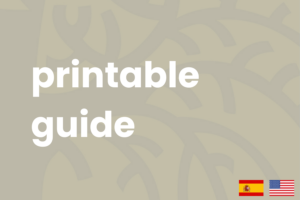Prenatal Diagnosis
Pregnancy is a time of hope and excitement and promise—dreams fulfilled. When a problem is discovered, parents can experience a chain of feelings and events that will require loving care and support.

Your Team:
A member of the clergy who is responsible for the religious needs of an organization and/or its constituents.
A specialist whose aim is to improve the quality of life of their patients over the course of their illness regardless of stage, by relieving pain and other symptoms of that illness.
A mental health professional who uses therapy and other strategies to support coping and adjustment and treat concerns regarding social, emotional, or behavioral functioning.
A trained professional who works with people, groups and communities to help them better their lives.
An individual who leads and/or guides individuals or groups coping with life experience and challenges.
A specialist in evaluation, diagnosis, and management of patients with hereditary conditions.
A physician who specializes in managing high-risk pregnancies.
Groups that represent and support patients and their families/care partners.
A specialist in evaluation, diagnosis, and management of patients with hereditary conditions.
A palliative care clinician can help guide your thinking in the face of medical uncertainty. A maternal and fetal health clinician can design the care plan. A psychologist, genetic counselor, social worker, chaplain and/or spiritual leader can provide a space for talking through your initial feelings and then your ongoing concerns. Patient organizations focused on your child’s diagnosis can be a place to find support.
Perhaps the biggest stressor will be the complicated medical decisions to be made during the pregnancy. If you have ever considered the possibility of prenatal problems (and all parents have, at some point), you may have strong feelings about the choices you would make. Faced with the actual need to make choices, you and your parenting partner, if you have one, may feel confident in decision-making. But you also may find yourself reconsidering your ideas and values in this moment.
Conversations between caregivers, and with clinicians, can be highly charged. This is especially so when there are differences of opinion to navigate. Know that you don’t “have” to do anything. If you choose to share the diagnosis (and this is your choice), you may hear a lot of opinions—but the decisions are yours to make. There are no right or wrong answers. A spiritual advisor can help you understand faith guidelines and help you process your feelings. A palliative care clinician can help you consider the options and clarify what is best for you and your family.
With this knowledge you will have greater confidence in making decisions now and as your pregnancy unfolds.
The CPN guide “Perinatal Palliative Care Pathways: Options for Caregivers to Consider” describes possible choices to consider and discuss with your care team.
– Brian, parent
Related Resources
-
 “Advice to my past self at the 20-week ultrasound: It’s your decision at the end of the day.”video
“Advice to my past self at the 20-week ultrasound: It’s your decision at the end of the day.”video -
 Perinatal Palliative Care Pathways: Options for Caregivers to Considerguide
Perinatal Palliative Care Pathways: Options for Caregivers to Considerguide -
 A life-limiting fetal diagnosis: Trisomy 18 as an example of supporting parents’ choices.video
A life-limiting fetal diagnosis: Trisomy 18 as an example of supporting parents’ choices.video -
 The uncertainty of fetal diagnosis is dramatic. We don’t box parents into a decision.video
The uncertainty of fetal diagnosis is dramatic. We don’t box parents into a decision.video -
 Fear of regret: "I have a lot of compassion for people making these decisions "video
Fear of regret: "I have a lot of compassion for people making these decisions "video -
 Perinatal palliative care “got to know us and really heard our hearts. They counseled us through the birth practices.”video
Perinatal palliative care “got to know us and really heard our hearts. They counseled us through the birth practices.”video